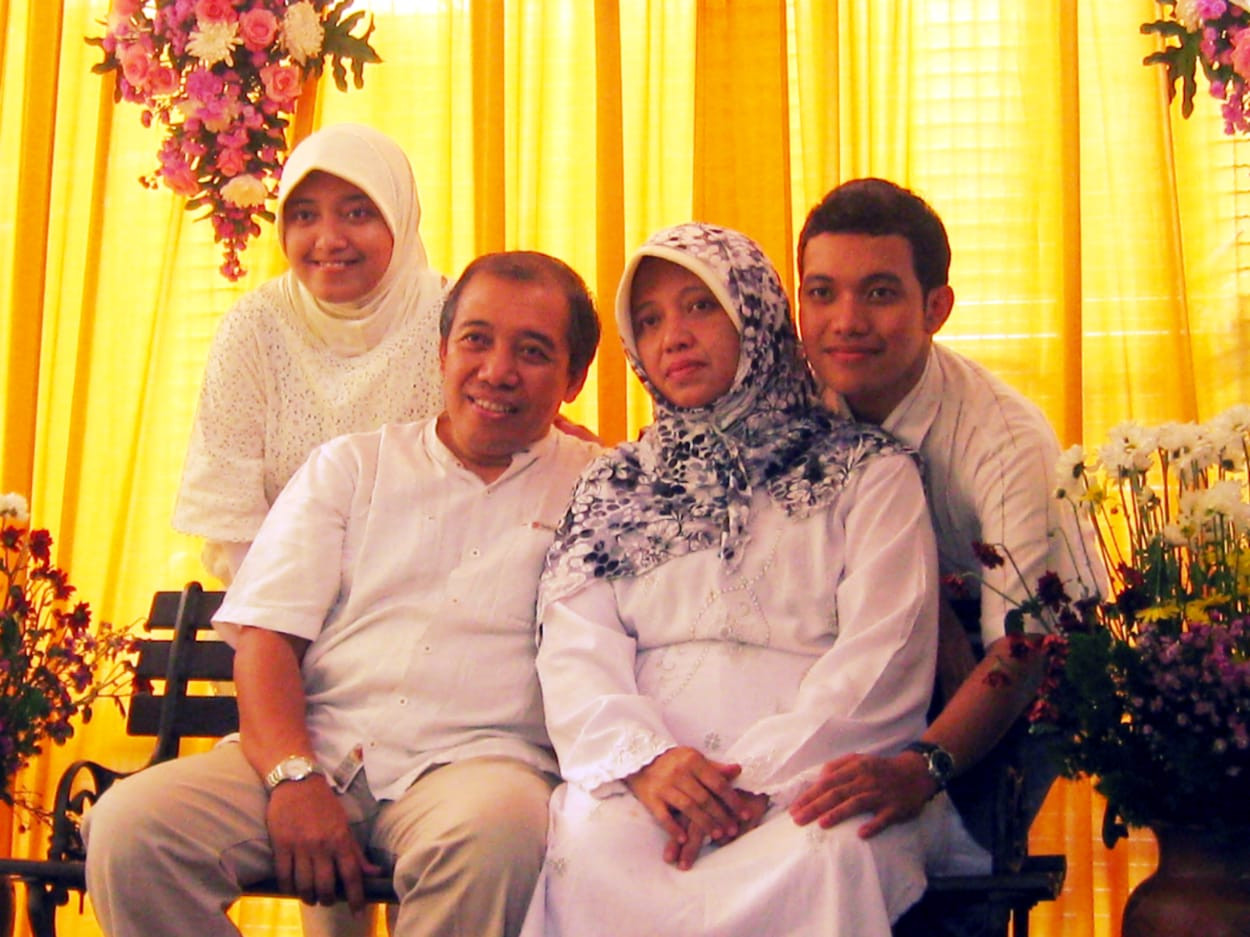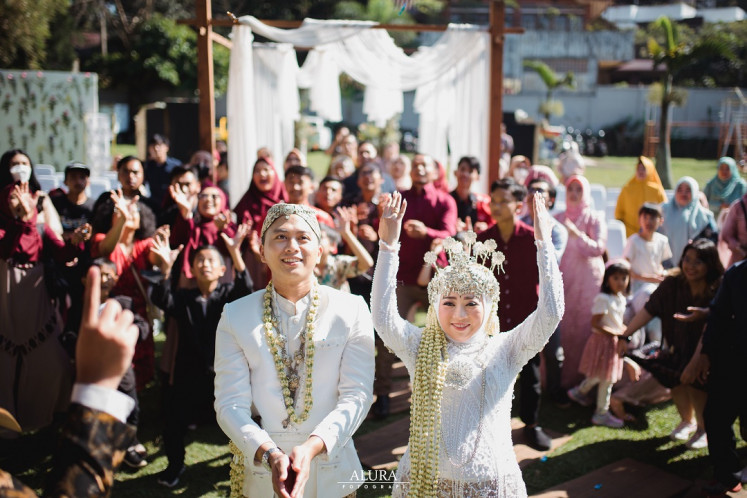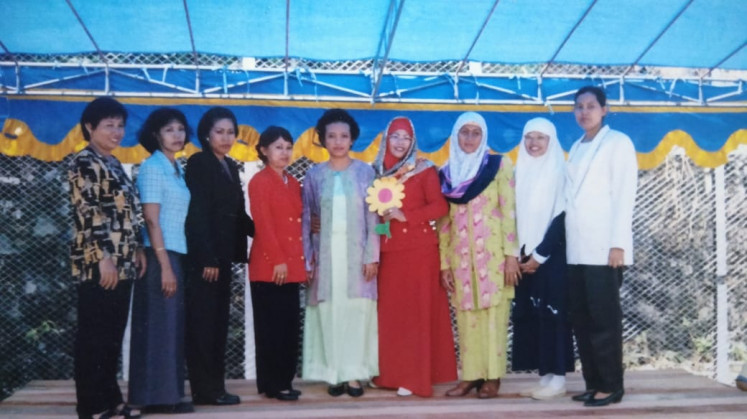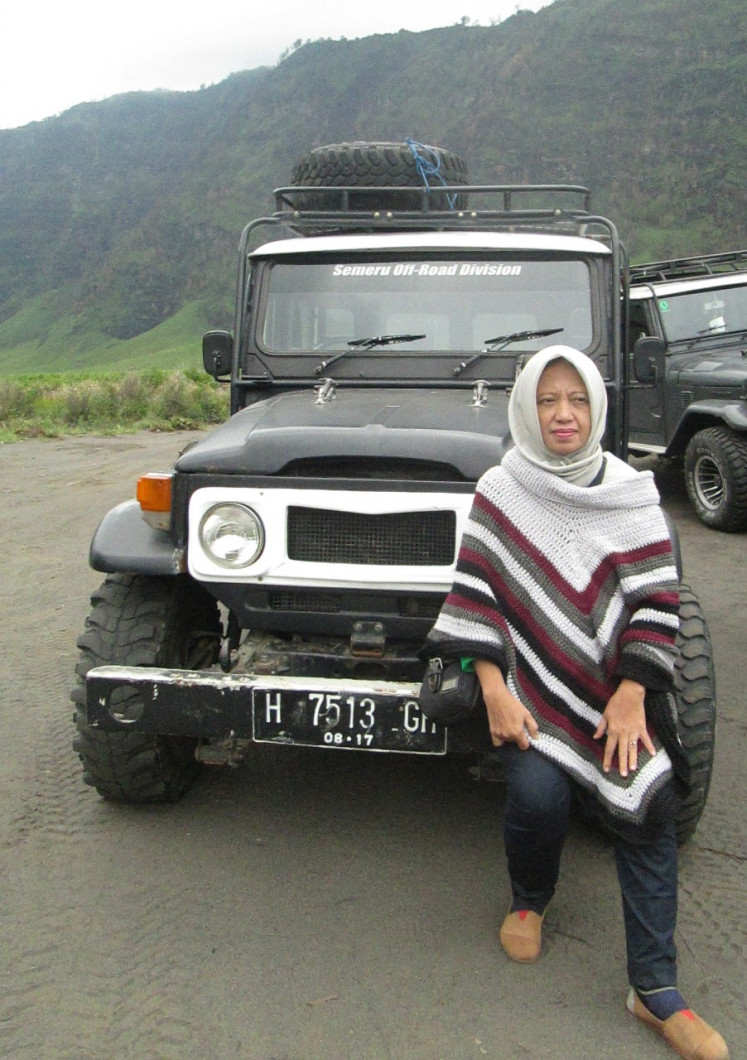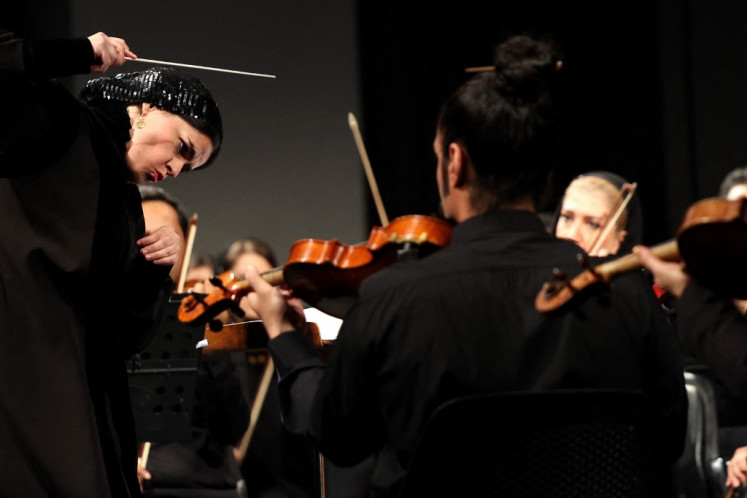Popular Reads
Top Results
Can't find what you're looking for?
View all search resultsPopular Reads
Top Results
Can't find what you're looking for?
View all search resultsPeople, not numbers: Nunik Herawati Hudojo, the teacher who cared endlessly for others
The sheer number of COVID-19 deaths has made it all too easy to forget that behind the statistics lie the stories of real people who passed too soon. In the series “People, not numbers” their lives are remembered by those who knew them best.
Change text size
Gift Premium Articles
to Anyone
N
unik Herawati Hudojo was a homemaker, a mother, a teacher and owned a boarding house, a depot and a food stall that served home-style meals. In her community, she was known to care deeply about education and shared whatever she had with the less fortunate. Nunik died on Dec. 15, 2020, in Malang, East Java, of COVID-19. She was 57.
Bayu Dwityo Wicaksono, a 30-year-old journalist, said his mother had shaped the person he had become. "She was like a close friend. I could talk to my mom about anything I was going through, whether it was about work or personal matters.”
Nunik was born in Blitar, East Java, and met her husband, Bambang Irianto, in Malang. They began their relationship in high school and were married just after their university graduation.
"Because my mother was studying in Malang, they had to have a long-distance relationship. They got married a few months after they met again," Bayu said, smiling.
They moved several times, including to Bandung, where Nunik worked as a science teacher from 1980 to 1985. She then moved with her husband to Tarakan, North Kalimantan, where she had her family.
Before settling back in Malang in 1998, Nunik founded the first playgroup on Tarakan Island in 1993, naming it Palapa. She and five of her friends used their own savings to establish the school. It is now called KB Telkom Tarakan.
"Back then, there was no school offering English lessons in the area. At first, my mom and her friends worked as volunteers. They did everything from teaching to funding the school. Some of the books were their own donations."
Education was very important to Nunik, a Biology graduate from the State University of Malang. From a young age, Bayu said, his mother had given him English lessons by having him watch English-language TV shows without the subtitles. She also taught him to read and write before preschool.
Nunik cared deeply about others. "My mom always taught us that under no circumstances should we forget to help others. Sharing is caring. She always told me that help doesn't always have to be material," Bayu said.
This spirit of generosity was a major part of Nunik’s personality. Before opening the depot in front of her house, she opened a small store. "My mother used to own a small store, but she made sure she did not overcharge her customers. Because all the items sold by my mother were very cheap, a nearby school canteen that wasn’t able to sell [its products] took it personally and confronted my mom," he said.
Bayu also recalled that his mother often took care of and sometimes raised less fortunate children. The family used to adopt abandoned children and children from unstable families. Nunik gave her adoptive children love and sent them to school. Bayu said one of the children adopted by Nunik now held a steady job and no longer earned a living on the roadside. "My mother and father stopped adopting children after my dad's retirement because my dad could only support his main family after retirement. The last child they adopted was an abandoned child they found in front of a shop in Malang. He is now an independent person."
When she started her food establishment and student accommodation business, Nunik implemented the same principle. "My mother is such a generous person. To whoever ordered food, she would give extra portions or add-ons," Bayu said. Since Nunik's food stall and student accommodation were located near a university, they were busy during student orientation week. During these times, she would keep the businesses open late, waiting for the students to finish their assignments.
Because of her kindness, many students, especially those who came from other cities, considered Nunik something of a foster mother. "I told her many times that it was dangerous for her and my sister to take care of the accommodation by themselves. My father used to travel out of town for work a lot, so I was worried about their safety. But nothing would stop her," he said.
Dewi, a 28-year-old who elected to use a different name for this article, lived in Nunik’s boarding house while she was at university. Once, while living there, she fell from a motorcycle. Being young, she was scared that her parents would scold her.
"Ibu Nunik called a massage therapist for me. She also helped me go to the bathroom and [allowed me to] sleep in one of her children's rooms. After I graduated, I kept in contact with her. She always reminded me to pray,” Dewi said.
Nunik's departure was a great shock to her family because she consistently adhered to health protocols. She always wore a mask and avoided crowds during the pandemic. Before getting sick, she had encountered guests who did not follow health protocols and underestimated COVID-19.
"Indeed, there was a time when families did not wear masks. They thought that death was in God's hands, even though they had been warned," Bayu said.
Nunik is survived by her husband, Bambang Irianto, and her two children, Bayu and Kartika. Both Bambang and Kartika survived COVID-19 in December 2020.
“My mom told me and my sister, ‘Your father and I left our hometowns. We had to survive on our own. I hope that if you are kind to strangers, the world will treat both of you well or even better in turn. I hope that good karma comes to us.’ That was her wish.”

